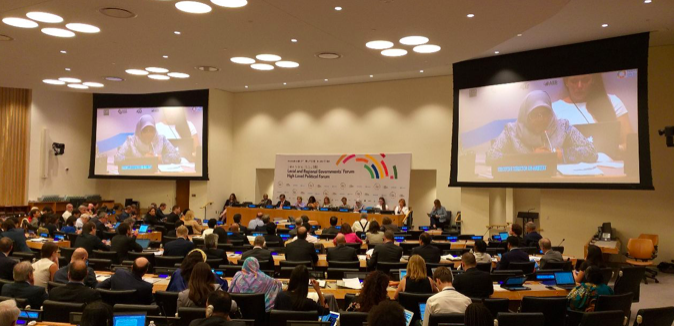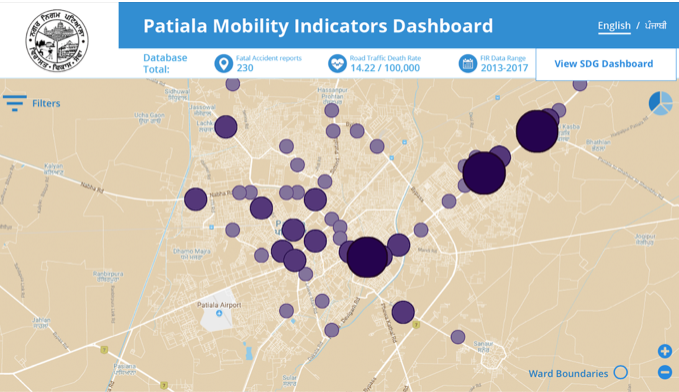|
Ruchi Varma, Program Manager - Urban Development, Community Systems Foundation Seth Davis, Communications Officer, Community Systems Foundation A powerful message was shared at the first Local and Regional Governments’ Forum during the 2018 High Level Political Forum (HLPF) on how Sustainable Development Goals are a unique opportunity to strengthen local governments. An unprecedented group of stakeholders which included policy-makers, mayors and ambassadors met at this forum to create an open dialogue on how cities can localize the SDGs. The forum, co-hosted by the UN DESA, UN-Habitat and the Global Taskforce of Local and Regional Governments, positioned policy-makers and mayors to share best practices, policy recommendations and promoted the #ListentoCities movement showcasing the role of ULBs in the implementation and the follow up to Agenda 2030. Robin Ogilvy, the Permanent Observer to the United Nations for the Organization for Economic Cooperation and Development (OECD) stated that, “Two-thirds of the SDGs will not be achieved without local governments being taken into consideration.” Noting this, Ogilvy demonstrated to an international audience that cities and local governments are better able to create sustainable projects that carefully consider cultural, regional and socio-economic contexts. This is where the role of data innovations and information systems can be leveraged to bolster local action in cities. OpenCities Institute (OCI), an urban initiative of Community Systems Foundation, seeks to empower cities and local governments with tools and capacity to institutionalize city data and build a culture of evidence-based decision-making grounded in the normative principles of the UN Agenda 2030. OCI in partnership with Transportation Research and Injury Prevention Program (TRIPP) at Indian Institute of Technology, Delhi, India has been working with two cities in India - Patiala, Punjab and Bulandshahr, Uttar Pradesh to work on data driven approaches to SDG-oriented planning and design for safer mobility. The local governments have been able to get a first-hand experience on how data platforms can be an effective tool in reporting accident statistics and tracking issues of mobility and road safety. Patiala road fatalities using Data For All Mapper
The Patiala Mobility Indicators Dashboard helps transform data already resting within the city into relevant information for the monitoring of targets and indicators on SDG3: Good Health and Well-being, SDG9: Industry, Innovation and Infrastructure and SDG 11: Sustainable cities and communities. This is true SDG localization in practice. This pivotal effort has gained further traction through a grant awarded by the Sustainable Development Solutions Network (SDSN) Local Data Action Solutions Initiative. CSF and OCI were awarded funding and technical assistance to create a proof-of-concept package for SDG localization and support Patiala Municipal Corporation to review other municipal objectives and priorities beyond road safety. The Global Goals have recognized the transformative power of urbanization and local governments are driving innovative sustainable development. By listening to cities and amplifying their concerns using data innovations, leaders at global, national and local level can responsibly and accurately reflect the unique needs of people and communities while simultaneously accelerating progress toward the SDGs.
0 Comments
Leave a Reply. |
Join the CSF data revolution webinar tomorrow!
COMMUNITY SYSTEMS FOUNDATION – EST 1963
+1 212 500 1335
data-driven sustainable development


